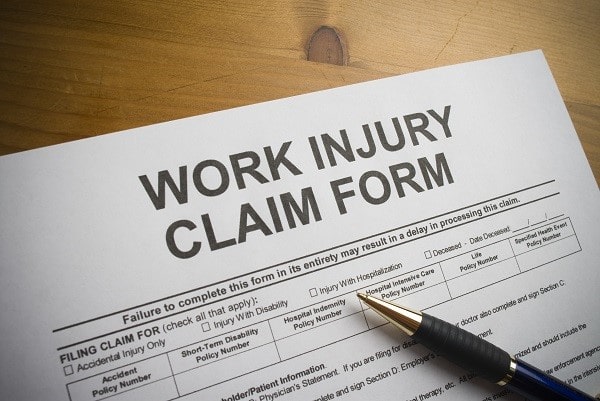What is the Employer Liable to Pay in Workers Compensation?
This article aims to shed light on what employers are liable to pay in workers compensation and the importance of having the right workers compensation insurance coverage.

When it comes to ensuring the safety and well-being of employees, workers compensation insurance plays a crucial role. In the unfortunate event of a workplace injury or illness, workers compensation provides financial protection to both employees and employers. This article aims to shed light on what employers are liable to pay in workers compensation and the importance of having the right workers compensation insurance coverage.
Understanding Workers Compensation
Workers compensation is a system designed to provide benefits to employees who sustain work-related injuries or illnesses. It is a form of insurance that employers purchase to cover the costs associated with such incidents. In exchange for these benefits, employees relinquish their right to sue their employers for negligence.
Importance of Workers Compensation Insurance
Workers compensation insurance is essential for employers as it not only protects their employees but also safeguards the business from potential lawsuits. By providing medical benefits, disability income, and rehabilitation services, it ensures that injured workers receive the necessary care while minimizing financial strain on both parties.
Coverage Provided by Workers Compensation Insurance
Workers compensation insurance typically covers medical expenses, lost wages, rehabilitation, and vocational training for injured workers. Additionally, it may provide death benefits to the dependents of employees who lose their lives due to work-related incidents.
Eligibility for Workers Compensation
To be eligible for workers compensation benefits, an employee must meet certain criteria. Generally, employees who suffer an injury or illness arising out of and in the course of their employment are eligible for coverage. However, each jurisdiction may have specific requirements, so it's crucial to understand the local laws and regulations.
Types of Injuries Covered
Workers compensation insurance covers a wide range of work-related injuries and illnesses. These may include physical injuries from accidents, such as fractures or sprains, as well as occupational diseases caused by long-term exposure to hazardous substances or repetitive motions.
Benefits for Injured Workers
Injured workers are entitled to various benefits under workers insurance. These benefits typically include coverage for medical expenses, a portion of lost wages, and rehabilitation services to aid in their recovery and reintegration into the workforce.
Employer's Liability in Workers Compensation
Employers are responsible for providing workers compensation benefits to their employees. This liability includes compensating injured workers for medical expenses, lost wages, and other related costs. The specific requirements and limitations may vary depending on the jurisdiction and the circumstances of the injury.
Compensation for Medical Expenses
Workers compensation insurance covers reasonable and necessary medical expenses related to the workplace injury or illness. This includes doctor visits, hospital stays, surgeries, medications, and other treatments deemed essential for the injured employee's recovery.
Compensation for Lost Wages
In addition to medical expenses, workers compensation provides compensation for lost wages resulting from the inability to work due to the injury or illness. The amount of compensation typically depends on factors such as the employee's average weekly wage and the severity of the disability.
Death Benefits
In unfortunate cases where a work-related injury or illness results in the death of an employee, workers compensation insurance provides death benefits to the dependents. These benefits typically include financial assistance to cover funeral expenses and ongoing support for the deceased employee's family.
Defenses Available to Employers
While employers have a responsibility to provide workers compensation benefits, there are certain defenses available to them. Employers may argue that the injury was not work-related, the employee was intoxicated or engaged in misconduct, or the injury occurred due to the employee's willful disregard for safety protocols. It's important for employers to understand their rights and obligations when facing a workers compensation claim.
Role of Workers Compensation Insurance Companies
Worker comp insurance companies play a crucial role in the administration of claims and the provision of benefits. These companies assess the validity of claims, coordinate medical treatments, and facilitate the payment of benefits to injured workers. They also work closely with employers to mitigate risks and promote workplace safety.
How to File a Workers Compensation Claim
In the event of a workplace injury or illness, it is essential for the injured employee to follow the proper procedure for filing a workers compensation claim. This usually involves notifying the employer immediately, seeking medical attention, completing the necessary claim forms, and providing any supporting documentation. Employers should have clear procedures in place to guide employees through the claims process.
Tips for Choosing the Right Workers Compensation Insurance
Selecting the right workers compensation insurance is crucial for both employers and employees. Here are some tips to consider:
Evaluate the coverage options: Look for insurance policies that provide comprehensive coverage, including medical benefits, disability income, and vocational rehabilitation.
Research insurance providers: Consider the reputation and financial stability of insurance companies. Look for those with a track record of prompt claims processing and excellent customer service.
Understand the costs: Compare premium rates and deductible amounts to find a policy that offers a balance between affordability and coverage.
Consult with professionals: Seek guidance from insurance brokers or agents who specialize in workers compensation insurance. They can help navigate the complexities of insurance policies and find the best fit for your specific needs.
Review the policy periodically: As your business grows or changes, it's important to reassess your workers compensation insurance coverage to ensure it aligns with your current requirements.
Workers compensation insurance is a vital aspect of safeguarding both employees and employers in the event of work-related injuries or illnesses. By providing financial protection and essential benefits, it ensures that injured workers receive necessary medical care, compensation for lost wages, and rehabilitation services. Employers bear the responsibility of providing these benefits, but they can mitigate risks by choosing the right workers compensation insurance coverage.
Investing in workers compensation insurance not only protects businesses from potential lawsuits but also demonstrates a commitment to employee well-being and safety. By understanding the liabilities and benefits associated with workers compensation, employers can create a safer work environment while providing the necessary support to their workforce.
What's Your Reaction?




















